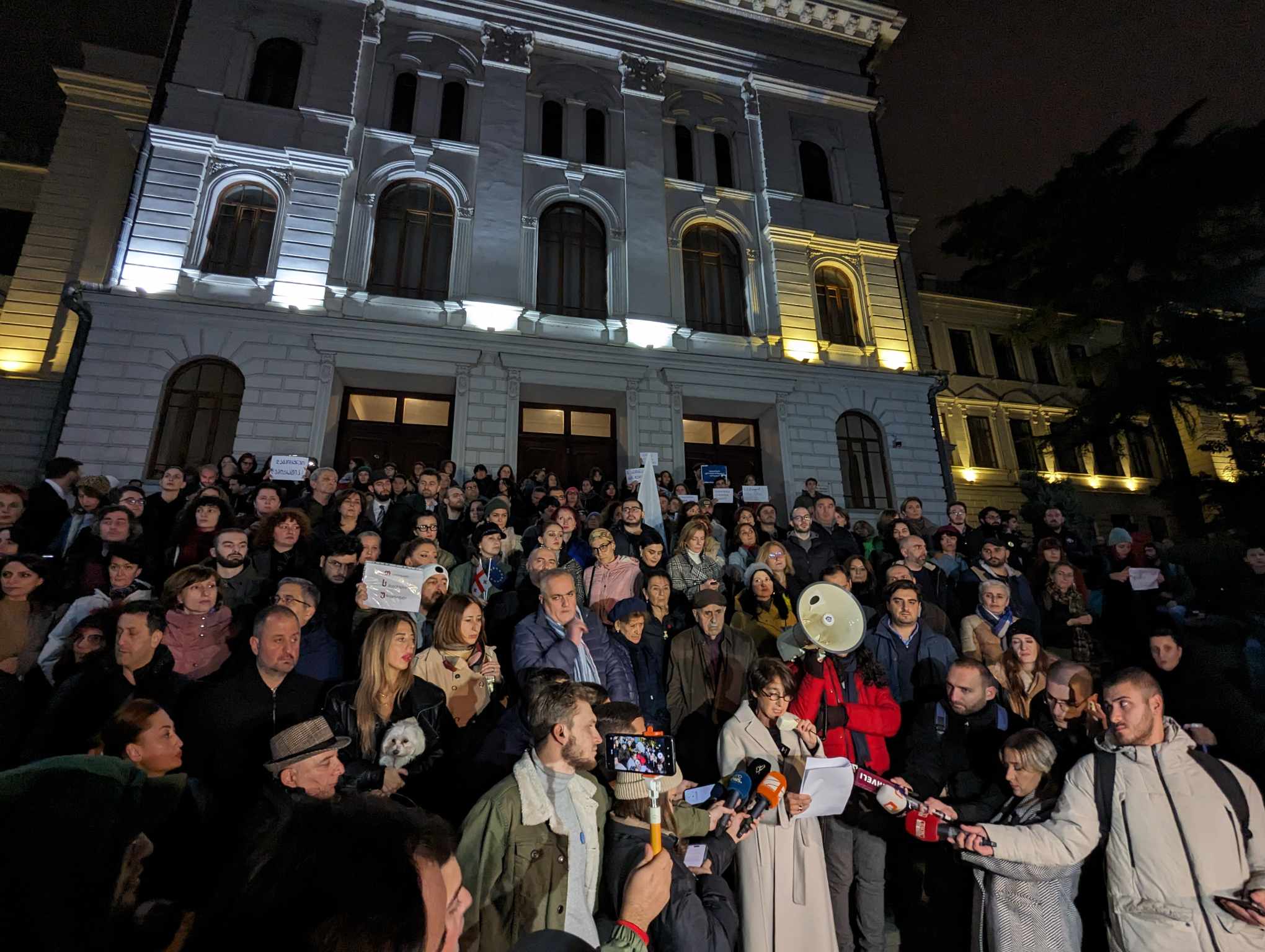The aftermath of Georgia’s October 26 parliamentary elections continues to stir significant unrest and controversy. The protests and legal actions following the elections reveal key issues within the nation’s political, academic, and social spheres, pointing to deep-seated tensions and governance challenges.
Students and faculty at TSU are demanding Rector Jaba Samushia’s resignation for allegedly allowing university premises to be misused during the violent dispersal of a peaceful rally on November 19.
This highlights the intersection of academic integrity and political activism, with TSU emerging as a symbolic center for resistance against perceived injustices.
Giorgi Gakharia, leader of the opposition party, urged diplomatic representatives not to legitimize the newly formed parliament, reflecting ongoing claims of election rigging.
This further isolates the ruling party while escalating diplomatic tensions.
Detained protesters face fines and short-term imprisonment, with activists highlighting police violence. Meanwhile, investigations into media obstruction signal increasing risks for journalists covering politically sensitive events. Organizations like Reporters Without Borders (RSF) are pressing for stronger protections, signaling international concern over press freedom in Georgia.

Complaints filed by President Salome Zurabishvili and 30 MPs regarding electoral violations point to potential legal and constitutional reforms. The consolidation of these complaints by the Constitutional Court reflects procedural complexities and underlines the need for clarity in electoral processes.
Opposition groups and protesters are evolving their tactics, recognizing the limitations of prolonged static demonstrations. This strategic pivot suggests a more calculated approach to sustaining political pressure. The protests reflect systemic concerns about electoral transparency and democratic governance in Georgia, raising questions about the robustness of its electoral framework.
TSU’s involvement in the protests underscores the potential of academic spaces to serve as arenas for political expression and resistance, highlighting the fragile boundary between academia and state intervention. Allegations of police violence and obstruction of journalistic activities signal a troubling trend in restricting civil liberties. International scrutiny may pressure the government to uphold democratic standards. The events further entrench divisions between the ruling party and opposition, complicating efforts to foster political stability. This polarization risks undermining public trust in governance.
Georgia’s ongoing political unrest reflects critical challenges in balancing governance, civil liberties, and institutional integrity. The protests and legal actions underscore the need for reforms to ensure electoral transparency, protect academic and journalistic freedoms, and bridge the widening gap between political factions. As the situation evolves, Georgia’s trajectory will serve as a case study in navigating post-election crises in transitioning democracies.

